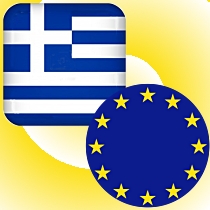 Greece has backed off the controversial imposition of harsh taxes on gamblers’ winnings, opting instead for a more progressive tax regime. Under the original plan, gamblers were to pay a flat tax of 10% on all winnings, a dystopian vision of the future that OPAP’s retail betting agents/drama queens called a “blatant theft of hope.” But on Sunday, the finance ministry relented, promising to introduce an amendment to parliament that would put a 15% tax on winnings between €100–€500, 20% on winnings above €500, while allowing winnings under €100 to escape the tax man’s clutches entirely.
Greece has backed off the controversial imposition of harsh taxes on gamblers’ winnings, opting instead for a more progressive tax regime. Under the original plan, gamblers were to pay a flat tax of 10% on all winnings, a dystopian vision of the future that OPAP’s retail betting agents/drama queens called a “blatant theft of hope.” But on Sunday, the finance ministry relented, promising to introduce an amendment to parliament that would put a 15% tax on winnings between €100–€500, 20% on winnings above €500, while allowing winnings under €100 to escape the tax man’s clutches entirely.
While Greek punters were catching a break, the European Commission (EC), wants to make online gambling firms subject to the same financial reporting requirements as brick-and-mortar casinos. The EC’s proposed revisions to the Third Money Laundering Directive are the result of a push by the international Financial Action Task Force (FATF) for a renewed focus on financial crime. The Philippines just approved legislation sparing both online and land-based gaming from much of the scrutiny the FATF is demanding.
Under the proposal revealed this week by EU internal market commissioner Michel Barnier, online firms would be required to monitor all bets over €2k – whether these are made in a single wager or in a group of wagers that appear related – and identify the customer making these bets. “Member States should consider applying this threshold to the collection of winnings as well as wagering a stake.” Unusual and suspicious transactions would have to be monitored and enforcement agencies in European Union member states would have the power to conduct on-site inspections to determine operator compliance. Non-compliance could result in fines of up to €5m on individuals and up to 10% of a company’s turnover. Greater effort would be required to identify gambling service providers’ beneficial owners and whether these are “fit and proper persons.”
Sigrid Ligné, secretary-general of the European Gaming and Betting Association (EGBA), is generally supportive of the harmonization of gaming edicts across the EU and hopes the draft directive will improve market access for regulated operators. Ligné noted that the money laundering bugaboo is often used by some EU member states “as a justification to prohibit online gambling services.” Remote Gambling Association president Clive Hawkswood has previously stated that there was ‘no evidence of risk” in the online betting realm. The EC’s working group on the matter will discuss the draft directive on Feb. 12. Depending on how things progress, the Fourth Money Laundering Directive could become law across the EU within two years.
